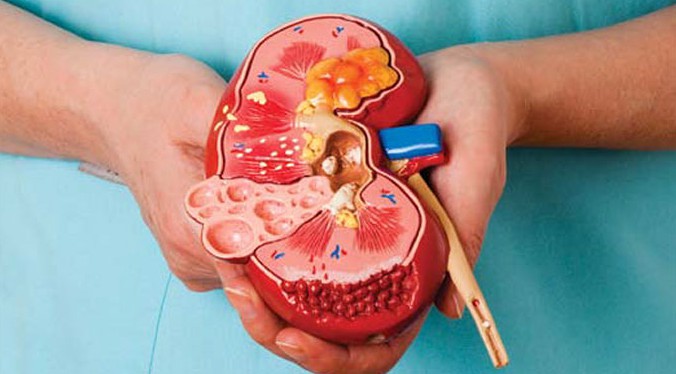
A leading surgeon based at Southampton’s teaching hospitals has warned the UK is sitting on a kidney stone “timebomb” fueled by the growing obesity crisis.
Bhaskar Somani, a consultant urological surgeon at Southampton General Hospital in the UK, says annual admissions for kidney stone treatment are increasing by between 5% and 10%, with prevalence rates 75% higher in obese patients.
He says poor diets and lifestyles are a “key contributory factor” in the development of the condition, with consumption of too much animal protein and levels of salt creating a “breeding ground” for kidney stones.
“Nearly two-thirds of men and women in the UK are obese (body mass index (BMI) over 30) or overweight (BMI over 25), with 25% of adults classed as obese, and we know diet and lifestyle can be a major cause of kidney stones,” he explains.
“When you consider the total number of hospital admissions for patients with stone episodes increased by 63% to more than 80,000 a year over the past decade, it is clear to see we have a problem.”
The condition, which affects around 10% to 20% of the male population and 3% to 5% of women between the ages of 20 and 60 years, develops when crystals of salt accumulate into stone-like lumps. Although the body tries to pass stones out of the urinary system, they can lodge in the kidney tube and cause severe abdominal and groin pain which, in many cases, can only be corrected through surgery.
“In the last 20 years, male obesity has doubled from 13% to 24.5% and female obesity has risen from 16% to 25%, with poor eating habits involving excessive protein and salt intake known to fuel the build-up of chemicals in the urine,” explains Somani.
Similar findings have also been documented in the U.S., where obesity rates have risen even faster than in the UK. Over the past 30 years, the number of Americans diagnosed with kidney stones has more than doubled, jumping from less than 4% to nearly 9% of the U.S. population. The link with obesity is clear: according to a 2012 study from UCLA and the RAND Corp, obese Americans are more than 10 times more likely to develop kidney stones than their healthy-weight counterparts.
Somani notes that obesity contributes to the development of diabetes and high blood pressure, often leading to a condition called metabolic syndrome, which can further exacerbates stone formation.
“Kidney stones are often a forgotten outcome of weight gain and obesity, but the impact of the condition on people’s quality of life should not be underestimated,” Somani says. “Stones are a timebomb and, in a large number of cases, will be an indication of someone going on to suffer other serious health problems unless actions are taken to improve lifestyle.”
Given the startling rise in kidney stone episodes, Somani says there is now an urgent need to drive home the message that a healthy lifestyle, diet and fluid intake is the best way to prevent the development and recurrence of stones as well as other serious health problems.
“[I]f we can intervene now and raise awareness of these health issues, a reduction in kidney stones will be accompanied by a positive impact on the prevalence obesity among the population,” he adds.
He suggests that all adults could make a start by aiming to drink between two to three liters of water a day to reduce the risk of developing stones, while those who have previously suffered from stones should maintain a daily intake of three liters or more to avoid recurrence.
Healthy eating habits are another key preventive step. The DASH diet (Dietary Approaches to Stop Hypertension), which is primarily known for its ability to decrease hypertension (high blood pressure), has also been shown to significantly reduce the risk of kidney stones. The diet is comprised of foods low in saturated fat, total fat, cholesterol, and sodium; it is also rich in protein and fiber, and limits foods that are high in salt and added sugars.
